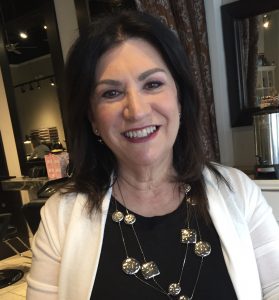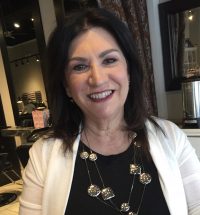Jewish Life Through a Disability Lens
At Libenu, we believe that participation in Jewish life is a birthright, not a privilege. The challenge we face is
Libenu’s residents do not fit neatly into either the tribal or covenantal categories of contemporary Judaism as described in Jewish Megatrends. For many of our clients, the practice of Judaism, with its familiar and comforting rituals, is a singular joy in their lives. Following Jewish traditions and customs enhances their quality of life and enables our residents to experience a sense of communal, “tribal” belonging. At the same time, many of our residents would also be considered covenantal Jews in that they are deeply concerned about justice, compassion, human dignity, and the protection of those who are most vulnerable, which, in some instances, is them. Perhaps it is the nature of their disabilities or their heightened sensitivities to Jewish life and their roles in it, but the either/or categorization of tribal and covenantal Jews does not truly apply to this population.
Nonetheless, Libenu’s work aligns with each of the four propositions for engagement, albeit in a unique way.
Chochma/Wisdom
It is an unfortunate reality that negative assumptions are made about the potential of people with disabilities to explore the sacred texts and learn from them. The truth is that if the material and language are modified to meet their levels of understanding, individuals with disabilities are capable of learning and applying the lessons of Jewish tradition to their lives. Libenu advances chochma by offering Jewish learning experiences that meet the needs of our clients. Libenu’s answer to Rabbi Jonathan’s Sacks’ question, “Can we hear the voice of G-d in a language and culture not our own?” is an affirmative, as long as we make that information accessible, without preconceived assumptions about ability or lack thereof.
Libenu also seeks to advance wisdom and understanding about people with disabilities in the larger Jewish community. As such, we offer topical workshops and consultations that are predicated on Jewish values to communities throughout the United States, to foster inclusion and belonging for individuals with special needs.
Tzedek/Social Justice
Libenu is a prime example of tikkun olam. We “repair the world” by proactively addressing the critical issues that Jewish individuals with disabilities regularly encounter: the availability of affordable, community-based living options; vocational training and employment; inclusive social and recreational activities; after-school respite care for families with younger children; equal access to and belonging in the Jewish community.
Inclusion and belonging are also major social justice issues. However, these have been traditionally addressed in ways that provide services to individuals with disabilities, but do not encourage their full participation. For example, a synagogue may hold an adapted holiday service for families who have children with disabilities. The service provides experiential access, but not inclusion. Temples and youth groups hold “mitzvah days”, where congregants and students plan activities for individuals with special needs. While these activities are often fun and fulfilling for the congregants, they do not actively promote social justice for people with disabilities. Libenu clients do not want to just be the passive recipients of social justice – they also want to be the proponents of tzedek in a Jewish world where they have often been disenfranchised. As such, Libenu challenges Jewish organizations to think beyond what they can do for our clients to what they can do with our clients. It is only through participation and engagement that inclusion can lead to belonging.
Kehilla/Community
The essence of Libenu is community – it is at the heart of everything we do. Libenu was established to empower Jewish individuals with disabilities to live with dignity and respect as fully included members of the community. Libenu homes and programs are strategically located in the Jewish community so that our clients can partake fully. We work with local rabbis and community leaders to help them understand how to encourage inclusion in their congregations and organizations.
Libenu also works to move past inclusion to foster belonging. Belonging means that one has a sense of comfort, security, and familiarity in the community. It means that one feels valued, appreciated, respected and accepted. For our clients, to belong is to have authentic friendships and relationships that extend beyond structured events, such as having Shabbat dinner with new friends; being invited over for the holidays; and being missed if you aren’t there. The most important aspect of inclusion in the community is the intentionality to foster belonging.
At Libenu, we believe that each individual is like a jewel in the crown of our community. Although the jewels differ in size, shape, and color, each one is integral to the beauty of the crown. If even one jewel is lost, the entire crown is diminished in value. So it is with the Jewish people. Each one of us is an essential member of the community, regardless of ability. If even one person feels excluded, disconnected, or isolated, the entire community is diminished. Fostering a sense of belonging is a Jewish imperative.
Kedusha/Lives of Sacred Purpose
By recognizing and valuing people with disabilities for their unique abilities and contributions, the kedusha of our community is elevated. Whether we chose to view kedusha through a religious or humanistic lens, it is the transcendence of the realm of the personal to the needs of the other that enables spiritual elevation. At Libenu, we understand that when we strive to provide a high quality of life for Jewish adults and children with disabilities, ease the burden and ensure the future for their families, include individuals with special needs in the Jewish community, we fulfill a sacred purpose.
Dr. Shana Erenberg is the co-founder and Executive Director of Libenu, which provides housing, vocational training, recreational programs, and respite services for children and adults with disabilities. She is also the Chairman and Professor Emeritus of the Department of Education at the Blitstein Institute of Hebrew Theological College/Touro University in Chicago.


